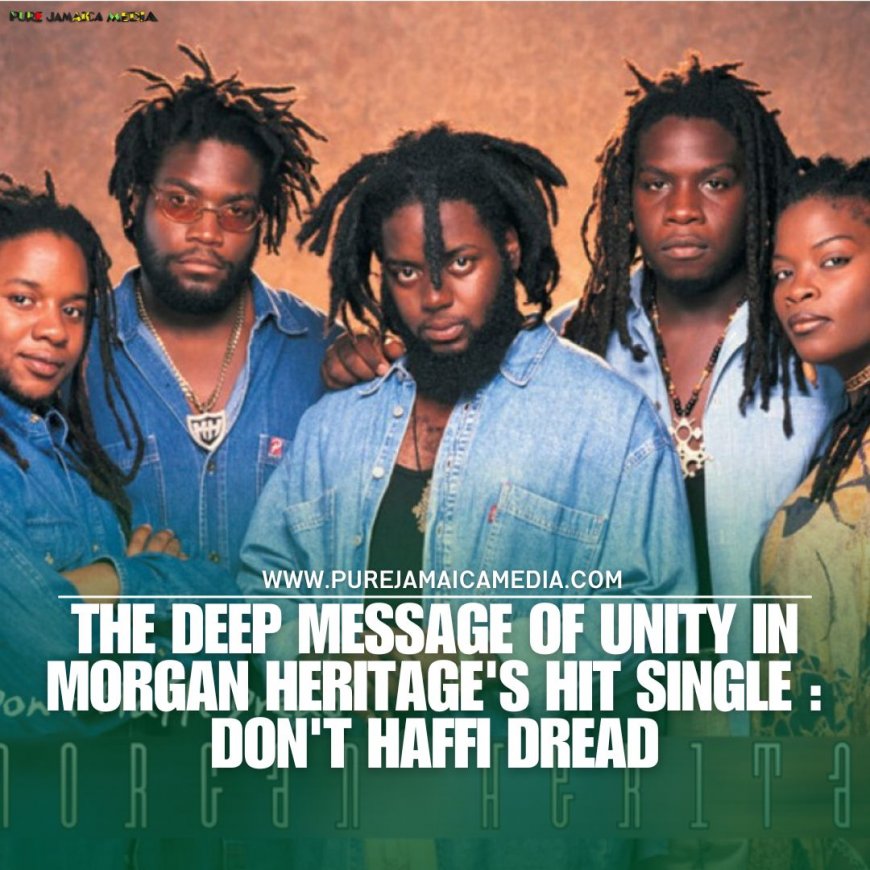The Deep Message Of Unity In Morgan Heritage's Hit Single : Don't Haffi Dread
Recognizing its contribution to dismantling stereotypes and promoting unity. The song serves as a timeless reminder that true connection lies in respecting individual journeys and celebrating our shared humanity.
On Pure Jamaica Media, we feature reggae music, exploring its cultural significance and enduring messages. Today, we turn our attention to Morgan Heritage's iconic song "Don't Haffi Dread," a track that transcends mere lyrics and challenges preconceived notions.
Roots to Recognition:
Morgan Heritage, the five-member Jamaican band of siblings, emerged in the late 80s, quickly gaining recognition for their infectious blend of roots reggae and contemporary influences. "Don't Haffi Dread," released in 1999, stands as one of their most popular and thought-provoking songs.
The title track, which advised that one doesn't need dreadlocks to be committed to Rastafari, was a hit. The band promoted the album by supporting Toots and the Maytals on a North American tour. Live In Europe!
More Than Hair, a Message of Faith:

While the title and opening line, "Don't haffi dread to be Rasta," might initially suggest a commentary on Rastafarian culture, the song's essence goes deeper. It dismantles the misconception that dreadlocks are a prerequisite for following the Rastafarian faith.
Divine Connection, Not External Symbols:
"Don't Haffi Dread" emphasizes the core principle of Rastafarianism: a direct connection with the divine, Jah. The song highlights that this connection lies within the heart and mind, not in outward appearances.
Unity Beyond Labels:
Morgan Heritage extends their message beyond the Rastafarian community, calling for unity and understanding across all walks of life. The song emphasizes that judging individuals based on their physical appearance or labels is detrimental to fostering genuine connection.
Legacy of a Song:
"Don't Haffi Dread" resonates not only within reggae circles but also with wider audiences seeking messages of acceptance and inclusivity. It continues to inspire conversations about cultural understanding and the importance of looking beyond surface-level judgments.
Join the Conversation:
Share your thoughts on "Don't Haffi Dread" and its message in the comments below. How does this song resonate with you? How can we continue to promote understanding and acceptance in our communities?










